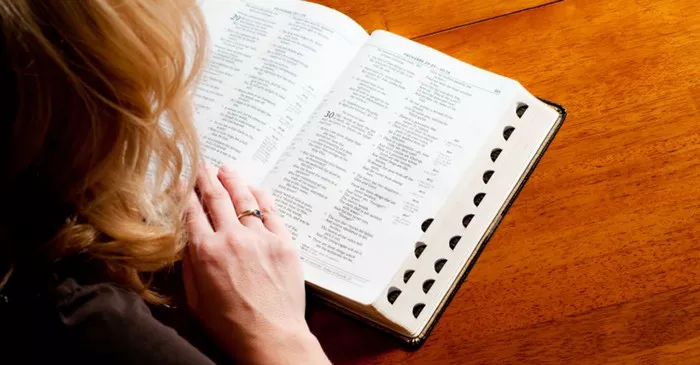The Gospel of Matthew, revered for its comprehensive account of Jesus Christ’s teachings, contains a passage in Chapter 18, verses 15-20, which has intrigued theologians and scholars for centuries. In this passage, Jesus speaks to his disciples about resolving conflicts within the community of believers and imparts upon them the authority to “bind and loose” on earth. The significance of these terms has sparked debates and interpretations within Christian circles, delving into questions of ecclesiastical authority, forgiveness, and spiritual power.
Context and Setting
To understand the meaning of “bind and loose,” it is essential to consider the broader context of Matthew 18:15-20. The passage occurs within a discourse where Jesus addresses various aspects of community life, including humility, forgiveness, and reconciliation. Here, Jesus provides practical guidance on handling interpersonal conflicts within the Christian community, emphasizing reconciliation and restoration rather than condemnation or exclusion.
The Meaning of “Bind and Loose”
The phrase “bind and loose” originates from rabbinic language, indicating the authority to prohibit or permit certain actions within the religious community. In Jewish tradition, rabbis had the authority to interpret and apply religious laws, thereby “binding” individuals to comply with these laws or “loosing” them from their obligations. Similarly, Jesus bestows this authority upon his disciples, empowering them to make decisions that have spiritual implications for the community.
Binding and Loosing Sins
One interpretation of “binding and loosing” in Matthew 18:15-20 relates to the power to forgive or retain sins. When Jesus instructs his disciples to confront a sinning brother privately and then involve additional witnesses if necessary, he underscores the importance of reconciliation and restoration. Through the process of confronting sin and seeking repentance, the disciples exercise their authority to “bind” or retain sins by withholding forgiveness or to “loose” sins by granting absolution and reconciliation.
Ecclesiastical Authority
Another interpretation views “binding and loosing” as a reference to the authority of church leaders to make decisions regarding doctrine, discipline, and the administration of the sacraments. In this context, the disciples are entrusted with the responsibility of establishing guidelines for communal conduct and resolving disputes within the church. The authority to “bind and loose” extends beyond individual sins to encompass broader matters of faith and practice, reflecting the role of church leaders in guiding the spiritual life of the community.
Spiritual Warfare
Some interpretations of “binding and loosing” emphasize its connection to spiritual warfare and the exercise of supernatural authority. Proponents of this view argue that the disciples’ authority to bind and loose extends to confronting demonic forces and exercising power over spiritual strongholds. By invoking the name of Jesus and acting in accordance with his teachings, believers can bind the influence of evil and loose the blessings of God‘s kingdom upon individuals and communities.
Implications for Christian Community
The concept of “binding and loosing” in Matthew 18:15-20 carries significant implications for the life of the Christian community. It underscores the importance of accountability, reconciliation, and spiritual discernment in resolving conflicts and maintaining the unity of believers. By entrusting his disciples with the authority to make decisions that affect the spiritual well-being of the community, Jesus emphasizes the collective responsibility of believers to uphold the principles of love, justice, and forgiveness.
Accountability and Reconciliation
Central to Jesus’ instructions in Matthew 18:15-20 is the principle of accountability and reconciliation. By addressing conflicts directly and seeking resolution through dialogue and repentance, believers demonstrate their commitment to restoring broken relationships and fostering unity within the community. The process outlined by Jesus encourages humility, empathy, and a willingness to forgive, laying the foundation for genuine reconciliation and spiritual growth.
Discernment and Discipleship
The authority to “bind and loose” also highlights the importance of spiritual discernment and discipleship within the Christian community. As stewards of God’s kingdom, believers are called to exercise wisdom and discretion in applying biblical principles to contemporary challenges and conflicts. Through prayer, study, and reliance on the Holy Spirit, Christians can discern God’s will and act with integrity and compassion in addressing complex issues within the church and society.
Unity and Witness
Ultimately, the practice of “binding and loosing” in Matthew 18:15-20 serves to promote unity and witness among believers. When conflicts are resolved in a spirit of love and reconciliation, the church reflects the transformative power of the gospel and bears witness to the reconciling work of Christ. By prioritizing forgiveness and restoration, Christians demonstrate the radical nature of God’s grace and invite others to experience the transformative power of redemption and reconciliation.
Conclusion
The passage of Matthew 18:15-20 offers profound insights into the dynamics of Christian community life and the exercise of spiritual authority. Through the concept of “binding and loosing,” Jesus invites his disciples to participate in the work of reconciliation, forgiveness, and spiritual discernment within the church. Whether understood in terms of forgiving sins, exercising ecclesiastical authority, or engaging in spiritual warfare, the authority to “bind and loose” underscores the collective responsibility of believers to uphold the principles of love, justice, and reconciliation in the service of God’s kingdom.


